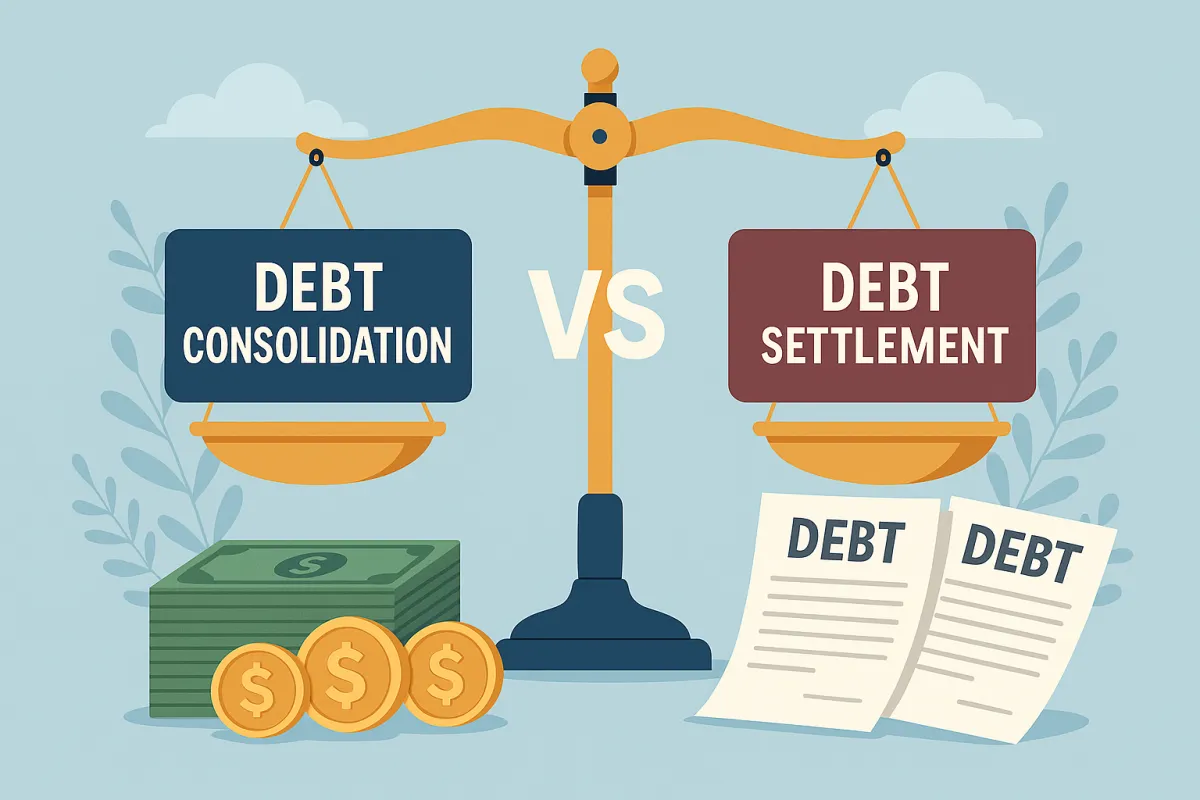
Debt Consolidation vs Debt Settlement: What’s the Real Difference?
If you're staring down a pile of credit card bills, personal loans, or medical debt and wondering how to make it all stop spinning, you're not alone. Financial stress is one of the most common burdens American households face. In fact, according to the Federal Reserve, nearly one in four U.S. adults say they’re “just getting by” or “finding it difficult to get by” financially. When debt starts to feel unmanageable, the big question becomes: How do I get out of this?
Two of the most popular options are debt consolidation and debt settlement. At a glance, they might seem like two sides of the same coin. But dig a little deeper, and you’ll see they take very different paths with very different consequences.
What Is Debt Consolidation?
Debt consolidation is exactly what it sounds like: you’re combining multiple debts into one. The most common method is taking out a personal loan or using a balance transfer credit card to pay off existing credit card balances or loans. Instead of making five or six separate payments every month, all with different due dates and interest rates, you make just one payment.
The goal here is twofold: to simplify your repayment and to lower your interest rate. If your credit is in decent shape, you may be able to lock in a significantly lower APR than what you’re paying on high-interest cards. According to Bankrate, the average credit card APR in September 10, 2025 is hovering around 20.12%, while personal loans for consolidation often offer rates between 8% and 15%.
Debt consolidation works best for people who have steady income, decent credit, and the desire to pay off their debt in full, just on more manageable terms. It doesn’t erase what you owe, but it gives you a clearer, often faster, way to pay it down without tanking your credit score in the process.
What About Debt Settlement?
Debt settlement takes a different route, and it’s not for the faint of heart. Instead of paying off your full balance, you or a debt settlement company negotiate with creditors to pay less than you owe. The idea is that some creditors would rather get a portion of what’s due than nothing at all.
On paper, that can sound like a win. Who wouldn’t want to slash their total debt by 30% or more? But there’s a catch: to make the settlement more appealing, you usually have to stop making payments. This puts pressure on creditors but also sends your credit score into a freefall.
Debt settlement can also come with tax implications. If more than $600 of your debt is forgiven, the IRS may treat that amount as taxable income. And not all creditors agree to settle, meaning this strategy isn’t guaranteed to work across the board.
How Do You Choose the Right Option?
The choice between consolidation and settlement comes down to your financial situation and your goals.
If you’re keeping up with minimum payments, have fair-to-good credit, and just want a better handle on your debt, consolidation is probably your best bet. You’ll pay everything off in full, just with less hassle and possibly less interest.
But if you’re falling behind, facing collection calls, or considering bankruptcy, settlement may be the more realistic path. It can get you out from under overwhelming debt faster, though with more risks to your credit and finances in the short term.
One isn’t better than the other. They’re just designed for different stages of financial hardship.
Let’s Talk Strategy
Debt isn’t just about numbers. It’s about stress, sleepless nights, and trying to feel in control again. At My Debt Navigator, we’re not here to push one solution over the other. We’re here to help you figure out what fits your life. Whether it’s designing a personalized debt consolidation plan or negotiating a settlement that finally gives you breathing room, we walk with you every step of the way.
Getting out of debt isn’t just about doing the math. It’s about making decisions that protect your future. And that starts with understanding what your real options are.
Book a free consultation call with My Debt Navigator today.